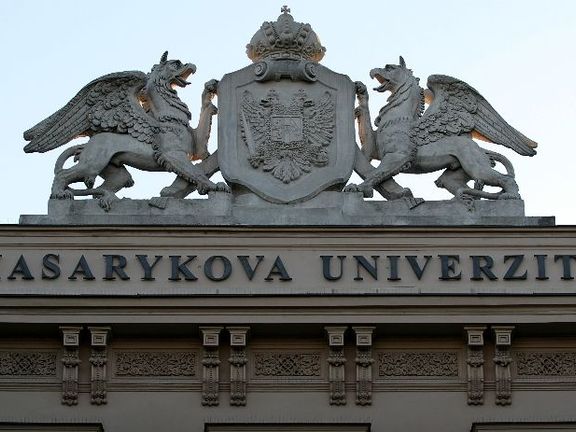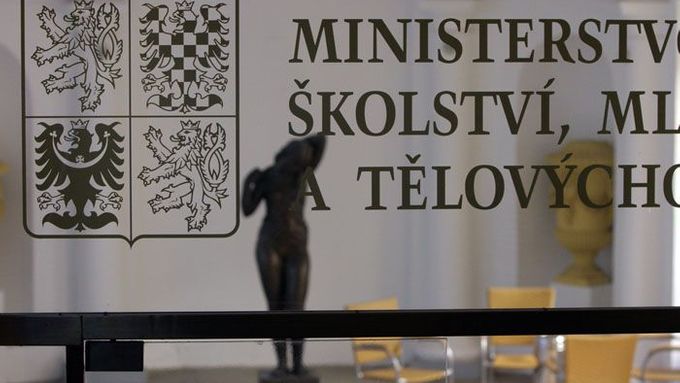Prague - The Czech government intends to raise the amount of funding it allocates for university research grants by only CZK 700 million over the next three years.
Put another way, this year's total funding budget of CZK 21.1 billion will increase annually by one percent. That doesn't even cover inflation, which the Czech National Bank is estimating to be at three percent during 2009 and two percent over the following two years.
Additionally, this increase does not take into consideration increased state spending on property maintenance or increases in instructors' real income.
These figures came out of budget restrictions set for 2009-2011, which the government first tabled three days ago.
It's never been this bad
Aktuálně.cz currently has in its possession an unpublished analysis from the Education Ministry, according to which the strictly set limits would mean an unprecedented fall in revenue.
Universities are worse off this year than they were in 2007. Revenues for 2008 are expected to grow by one percent, though inflation is expected by some foreign institutions to hit six percent.
The drop can be seen primarily in student grants. The number of post-secondary students has risen by 17,000, or 6 percent. Currently, only nine-tenths of what was allocated for every student last year is available.
| University research grants (CZK billions) | |||||
| 2007 | 2008 | 2009 | 2010 | 2011 | |
| Ministry budget | 20,4 | 21,1 | 21,3 | 21,3 | 21,8 |
| Zero option | 23,0 | 24,4 | 25,9 | ||
| Note: Data on the ministry budget for 2009-2011 from the proposed budget framework. The "Zero option" indicates how much this year's university expenditures will increase, in order to balance out the increases in salaries in the Czech economy and the growth in the number of students. These figures assume that from 2009 to 2011 universities will accept the same number of students as they did this year. Source: The Ministry of Education, Youth and Sports | |||||
Unhappy Liška
Education Minister Ondřej Liška didn't want to comment on the budget limits. He hasn't yet discussed the issue with university rectors. He did tell Aktuálně.cz however, that he wasn't happy with the proposal and would like to discuss the issue with his colleagues in the government in June.

"We intend to actively lobby this. We feel that the limits should be in accordance with the forthcoming university reforms," said Kateřina Böhmová, a spokeswoman for the minister.
A detailed reform plan called "the White Book" was presented by Liška and Prime Minister Mirek Topolánek on Monday.
Limitations for university budgets were definitively approved by the lower house of parliament in September.
Even less for every student
If the planned budget for post-secondary institutions is not amended, one of the primary financial weaknesses of Czech universities will be intensified.
In past years, post-secondary institutes have seen a boom in the number of new students they accepted. For example, there were 178,000 students in the Czech Republic in 2000. This year, that figure is up to 298,000. Revenue going to universities, however, has grown more slowly. As a result, there is less money given for every student.
In this respect, available funding on a per student basis has fallen by one third in the Czech Republic from 1995 to 2004, the highest drop among OECD countries. The only other countries recording drops in funding were Hungary, Portugal and Great Britain.
Joining Portugal and Turkey
The previous Social Democrat (ČSSD) led government stated that they would never allow citizens or companies to pay universities. In contrast to other OECD countries, the Czech Republic was the only one not to increase personal expenditures for education.
Meanwhile, government grants for students decreased on the whole worldwide, with Poland, Great Britain, Chile and Australia making the biggest reductions.
The Social Democrats tried to balance the amount of grants with the influx of new students in 2000-2005. Then-Prime Minister Vladimír Špidla ultimately guaranteed that expenditures for education would increase by a quarter in 2003. Since then, however, growth in expenditures has slowed, and this year universities have recorded an actual decrease in the funding allocated to them.
Czechs still live in a country where expenditures for post-secondary education remain lower than the country's economic performance. Among developed countries, the Czech Republic ranks alongside Portugal, Italy and Turkey.

